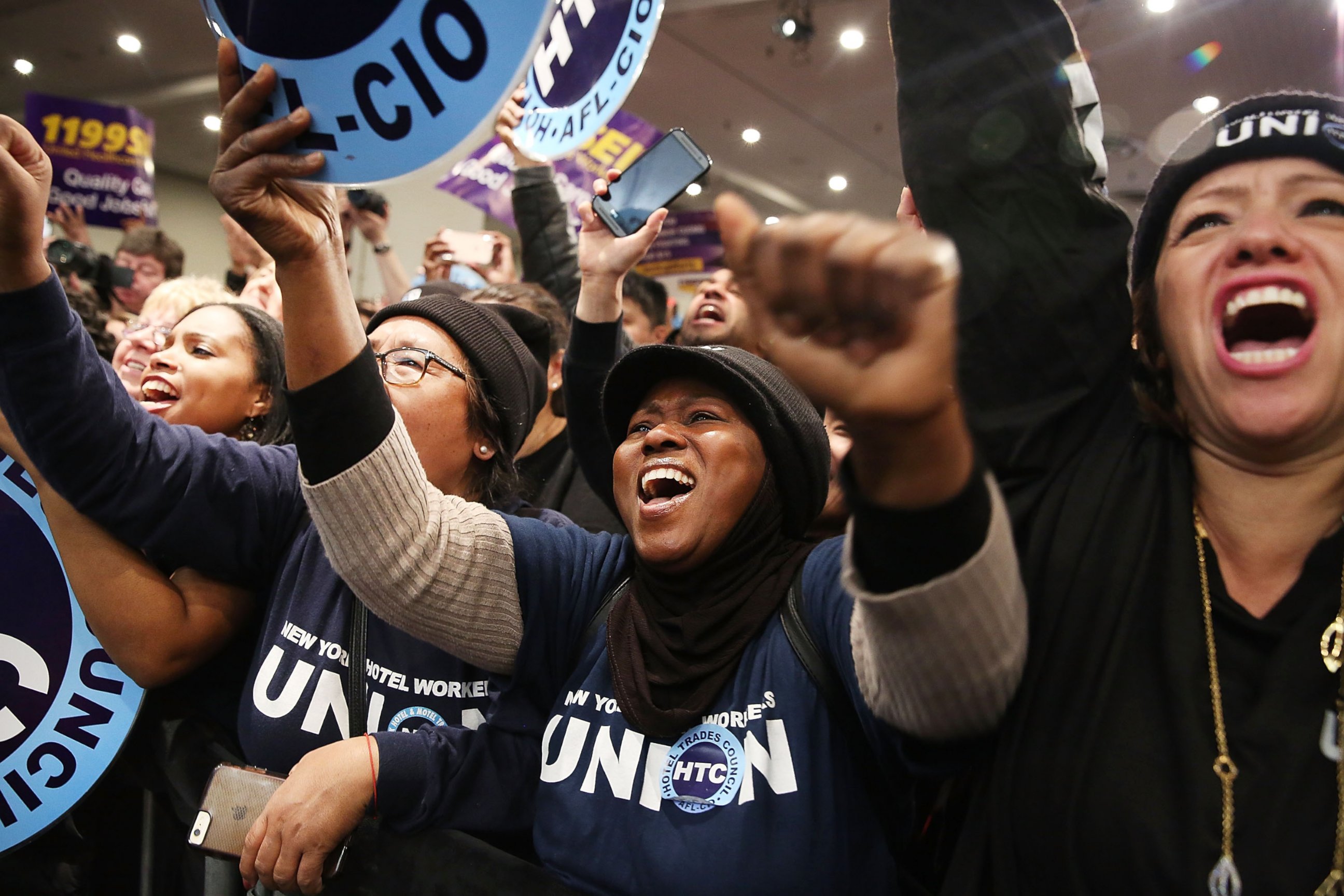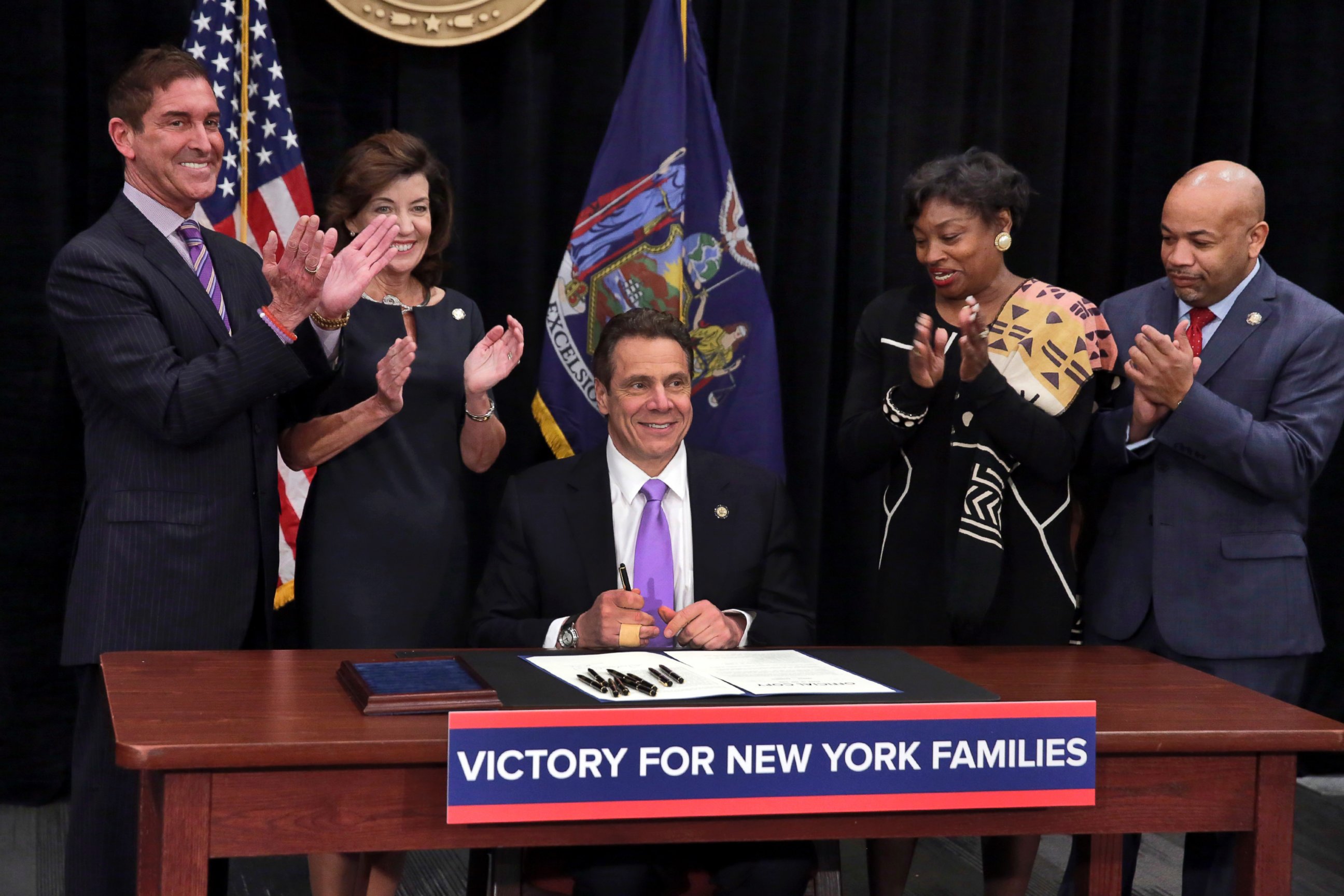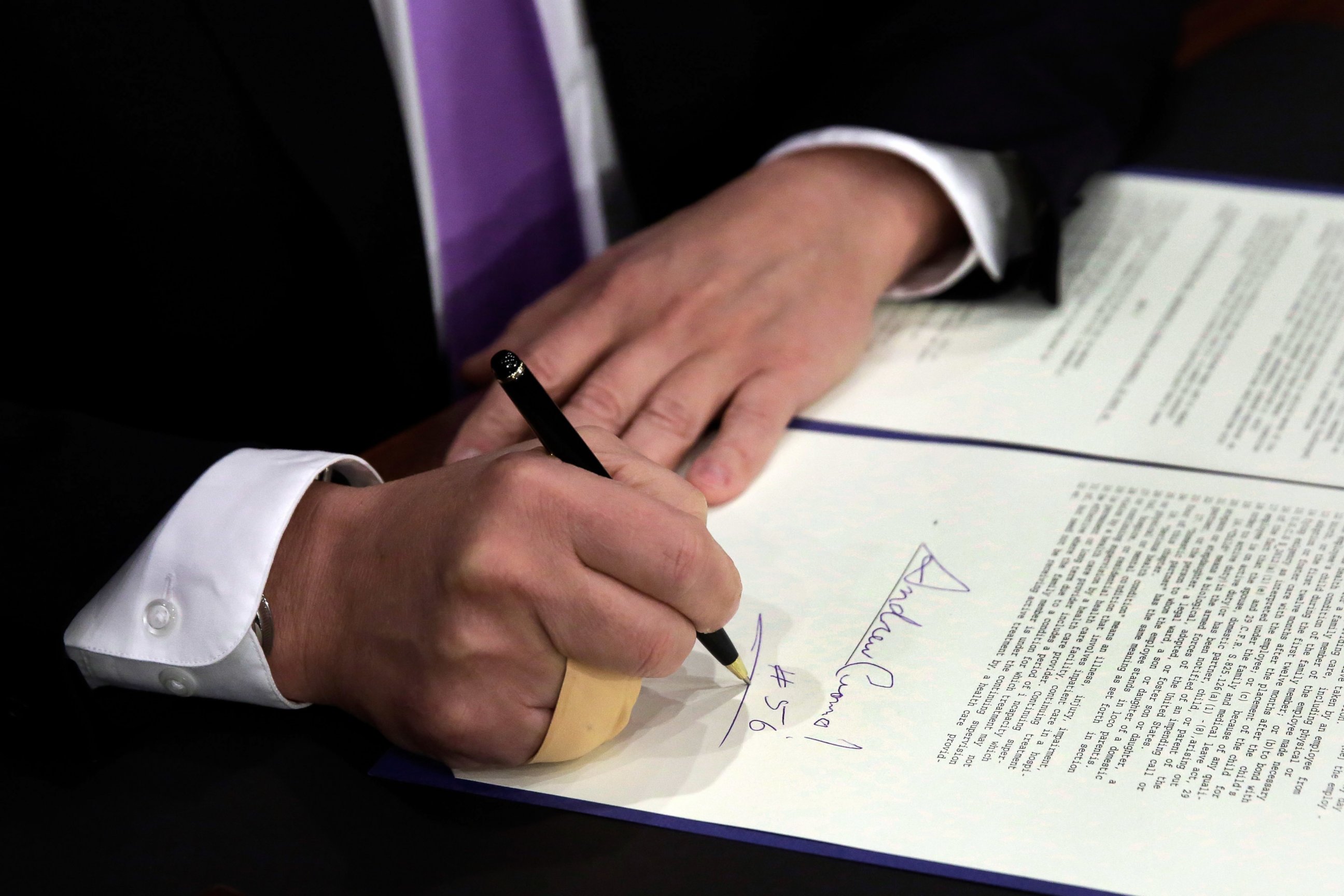California's $15 Minimum Wage Hike: What You Should Know
State lawmakers and labor unions announced the agreement on Monday.
— -- The minimum wage for California workers will jump to $15 minimum an hour, making it the highest minimum wage in the nation when it goes into effect in 2022.
State lawmakers and labor unions announced the agreement last week and California Gov. Jerry Brown signed the minimum wage increase into law today.

Here's What You Should Know:
California's minimum wage is now $10
Unions say that's less than $21,000 a year for a full-time worker. Last year, the Los Angeles city council voted to increase its minimum wage from $9 to $15 by 2020. In 2014, San Francisco voters passed a proposition that will raise the minimum wage from $12.25 to $13 on July 1 and to $15 by 2018.
A separate initiative was heading to the ballot
California voters could potentially weigh in on this issue in November. Earlier this month, California's secretary of state certified 402,468 signatures collected by unions like the Service Employees International Union-United Healthcare Workers West (SEIU-UHW). These groups have advocated that California residents vote on The Fair Wage Act of 2016, which would raise the state's minimum wage to $11 next year and gradually raise it a dollar each year until it reaches $15 by 2021. This ballot measure calls for the wage to be automatically adjusted annually to keep up with the state's cost of living.
How this deal is different
The Los Angeles Times was the first to report that California lawmakers had reached a tentative deal with labor unions, thus likely avoiding a ballot measure on Nov. 8. The most recent deal includes "off-ramps," or pauses in the annual minimum wage hike in case of negative economic conditions, including negative job growth or retail sales. Gov. Jerry Brown can also act by Sept. 1 of each year to pause the next year's wage increase if a budget deficit is forecasted of more than one percent of annual revenue.

How would the increases take place?
This latest deal would increase the minimum wage to $10.50 next year, then $11 in 2018, with an increase of $1 every year until it reaches $15 in 2022.
"We want to help pass the strongest and most comprehensive piece of legislation possible," SEIU-UHW president Dave Regan told ABC News, adding, "Increasing $5 whether in six or seven years is an enormous step forward."

Who this affects
This could affect all hourly workers and the businesses that employ them, though businesses with 25 employees or less would have an extra year to raise their wages. Nearly 2.2 million workers are paid the minimum wage in California, according to the governor's office.
The California Chamber of Commerce has opposed any statewide ballot measure for a $15 minimum wage, saying it would create burdensome costs for businesses and the government.
The National Restaurant Association said it opposes the hike.
"Profit margins in our industry are slim and the rate of survival is a high hurdle to overcome," a spokeswoman for the National Restaurant Association told ABC News. "As restaurateurs already grapple with rising food and operational costs, an increase to $15 will fundamentally change the way restaurants do business."
How California's wage hike compares to that of other states
When the Golden State's minimum wage increases to $15, it will be the highest statewide minimum in the nation. Massachusetts' minimum wage is now $10 and will increase to $11 on Jan. 1, 2017. The minimum wage in Washington, D.C., is $10.50 and will increase to $11.50 in July.




